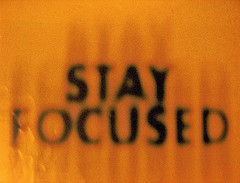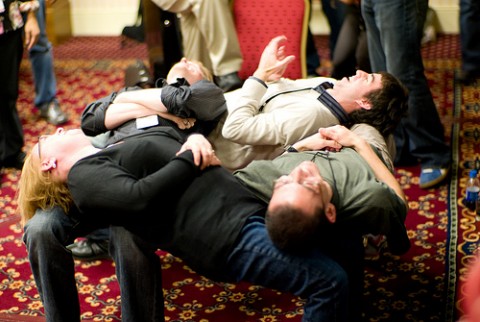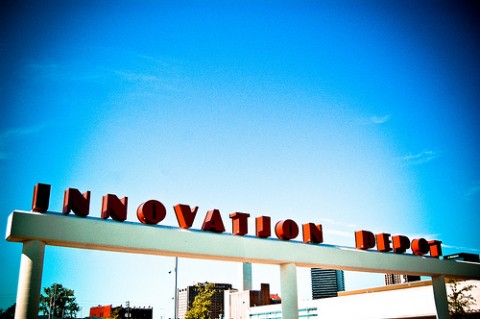July 12, 2010
I’ve been making the argument that happiness matters. I think it specially matters among those of us who are working towards social transformation. I believe there is a way to be happy and still face down the horrors that abate our world. I am convinced that when movement builders find and cultivate this sort of clear eyed happiness we will actually become a powerful attractor for those who yearn to build a better world but have not yet found a way to do it. Read More
July 8, 2010

This past week marked the release of Grantmakers for Effective Organizations’ newest action learning guide – Do Nothing About Me Without Me: An Action Guide for Engaging Stakeholders. IISC is pr0ud to be a co-publisher of and contributor to the publication, which builds on our work with GEO staff facilitating Engage for Results. Essentially this seminar walks foundation staff through a series of strategic questions and tools for engaging grantees, community members, and other stakeholders in their grantmaking. Worth highlighting here is what GEO and IISC identify as being core to the case for funders doing more to involve others in their work: Read More
July 7, 2010

|Photo by CatDancing|http://www.flickr.com/photos/catdancing/2442760677/sizes/m/|
Yesterday, Steve Waddell wrote an excellent post on the Networking Action blog about initiating a network. In it, he talks about four lessons he’s learned in starting a network:
- Be passion-driven and work-focused
- Think “community-development” not “governance structure”
- Use leading tools
- Integrate reflection, learning and flexibility
Read More
July 7, 2010

|Photo by CatDancing|http://www.flickr.com/photos/catdancing/2442760677/sizes/m/|
Yesterday, Steve Waddell wrote an excellent post on the Networking Action blog about initiating a network. In it, he talks about four lessons he’s learned in starting a network:
- Be passion-driven and work-focused
- Think “community-development” not “governance structure”
- Use leading tools
- Integrate reflection, learning and flexibility
Read More
July 6, 2010

This past weekend Samantha and I went to what I would call a “movement wedding.” Our friends Justin Francese and Doyle Canning, who co-founded smartMeme, decided it was time to tie the knot. It was a beautiful event and there are many highlights to share, but there is something in particular that has stuck with me since. Towards the end of the ceremony they invited us to join them in praying “the liberation theology version of the Lord’s Prayer,” and I feel like I’ve been contemplating this line since – Read More
July 2, 2010

|Photo by Sam Ilic|http://www.flickr.com/photos/stage88/3650502444|
I shared the following Wislawa Szymborska poem with faculty in an academic department at a university with whom I was working this week. We read it as we were about to launch our final day of discussions about collaborative leadership and team building.
Read More
July 1, 2010
For the better part of the last year and a half, my colleagues Ashley Welch and John McGah and I have been moving forward an IA/IISC cross-sectoral practice to bring Interaction methods + to the support of sustainability endeavors. Our early meetings around this budding practice included conversations about how best to frame leadership development for sustainability. We arrived at the graphic above, which combines what we see as the core elements needed for leadership to embrace and enroll others in sustainable pursuits.
With a foundation (watermark, if you will) of content knowledge about what sustainability is, the three elements are as follows:
• Systems Thinking (Seeing) – This is all about helping individual leaders and collective leadership see the whole, to understand that nothing stands in isolation, and that we must have a deeply felt sense of the interconnectedness of phenomena in order to make truly informed decisions. We take both our inspiration and instruction in this realm from the likes of the Sustainability Institute, the Center for Whole Communities, and The Elumenati.
• Self-Awareness (Being) – What we do is informed by who and how we are in the world. Awareness of our own beliefs, mental maps, and inherent tendencies is a powerful lever for making the sustainability shift, for aligning thought behind action. Self-awareness might also be cast as mindfulness, or the ability to be present to what is. Here we build upon our existing work around the inner side of leadership with the contributions of the Pachamama Alliance and John Milton.
• Collaborative Capacity (Doing) – With the whole in mind and awareness of our inner state, leadership will have a greater understanding of the need to work collectively toward more sustainable lifestyles and ways of doing business. Collaborative skill is key, including knowing how to frame sustainability efforts, create the right conditions for innovation, build agreement, structure decision-making, and design life-affirming experiences for diverse stakeholders. This is the heart and soul of the Interaction Method, and it is supplemented by the work of Keith Sawyer, CRED, and the many pioneers of large group methods and network-building.
Another key element and overlay for all of these is leadership’s ability to understand and navigate power dynamics as they play out in systems, in ourselves, and in our chosen methods for working together.
Eager to hear your reactions, tweaks, and additions.
June 30, 2010

|World of Oddy|http://www.flickr.com/photos/worldofoddy/146446352/sizes/s/|
I wanted to share this link to a short discussion by Pema Chödrön about the importance of staying with the hard stuff – not the story we create about a situation, but the underlying feeling itself – to create change. This follows along with previous posts I’ve made about the importance of “staying” – with conflict, in situations of privilege. The message being the same – the importance of learning to stay! And so I wonder how this applies to organizations and movements. I hear it this way – rather than trying to fix a situation too quickly, stay with it, learn about it, learn to live with the tension while we look for ways to create change. What do you think?
June 29, 2010

Are you amazing? Are you one of those people who are working to define the next phase of movement? Are you connected to a crew of local organizers, activists, innovators, dreamers? If you are an amazing movement builder then I want to be able to follow you on Twitter and I want to be your Facebook friend.
I find myself travelling from place to place and meeting some truly amazing people, I keep getting hip to really interesting projects and innovative approaches to the work of social change. I’m connecting to my tribe; I’m getting to know the people who are actively redefining the way we do social change. Here is the problem though – I can’t keep up with all of them! And here is where I notice an important distinction. When these people are using social media tools I can at least have a sense of what they are up to, I can get a glimpse of how their work evolves – but if they are not, then I’m left with hearsay. Read More
June 28, 2010

|Photo by joi|http://www.flickr.com/photos/joi/2941559903|
Our colleagues at Interaction Associates have done some wonderful work on the importance of trust in the workplace and what leaders can do to cultivate this, especially under uncertain circumstances the likes of which seem to be omnipresent these days. More recently, former IBMer Irving Wladawsky-Berger has taken this conversation to a new level in a post that looks at trust as “the most important operational resource in our society.” In our increasingly complex, interconnected, and distributed world, he says, one’s reputation as an individual or institution is foundational to what we might call success. This observation contributes to his sense that we are in the midst of a values-based generational transition as potentially profound as the sixties.
Without rehashing the entire post here (I encourage you to read it in its entirety by going to this link), I want to point out some of the more interesting parts and ask what folk engaged in the social sectors and social change work think Read More
June 24, 2010
“Collaboration drives creativity because innovation emerges from a series of sparks – not a single flash of insight.”
– Keith Sawyer, Group Genius

|Photo by Chris Denbow|http://www.flickr.com/photos/mojodenbowsphotostudio/2408750389|
Having last week blogged about when we might want to de-emphasize innovation and think about the small steps we can take towards change, today I embrace the “i word.” In doing so, I tip my hat to Keith Sawyer and to my Interaction colleague Andy Atkins for helping to clarify my thinking around the connection between collaboration and innovation for social change. Both are obviously quite popular concepts at the moment, and there is some discussion about how well they go together. For example, one of my colleagues had a conversation with a corporate leader last week during which this leader shared his deep belief that collaboration inhibits creativity and that flashes of insight occur in the individual’s mind. While the last part of that statement may be true, what leads to that flash and where one goes with it would seem to have everything  to do with interaction with others.
to do with interaction with others.
Read More
June 23, 2010

|Photo by Lee Adcock|http://www.flickr.com/photos/leeadc/2821894989/sizes/m/|
A few of us at IISC have been talking recently about network governance – trying to gather what we’ve learned about what kinds of governance structures have worked with networks. It’s sparked a lot of questions – and I had the great fortune of meeting with the amazing Jessica Lipnack recently to ask her advice about what she would suggest. For those who don’t know Jessica, she and her husband Jeff Stamps have been working with and studying networks for over 30 years and have literally written the book (actually the BOOKS) on networks and working with virtual teams over these many years.
Read More








 to do with interaction with others.
to do with interaction with others.